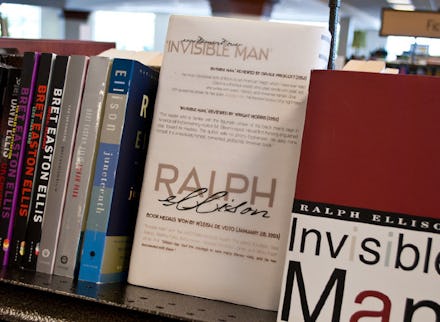Books Like This Are Being Banned in the Country You'd Least Expect

The news: Book banning is on the rise in America. Yes, America. This year saw more than a 50% increase in book-bans – and challenges brought against those bans – compared to 2012. That’s quite significant. It seems that stodgy censorship is having a comeback year in the U.S.
Thankfully, there are groups fighting to reverse banned books, and get them back on the shelves. The Kids’ Right to Read Project reports that it looked into 49 book-bans across 29 states. November was especially busy for the KRRP, which saw three times the average amount during the month.
A noticeable trend has turned up among the banned books this year, according to the KRRP. While books are typically banned for sexually explicit material (pornography, obscenity, you know the drill), the KRRP has seen a rise this year in the banning of books by minority authors – including Ralph Ellison, Alice Walker, and Sherman Alexie. What’s up with the spike in these sorts of book bans? “There are moments, when a half-dozen or so challenges regarding race of LGBT content hit within a couple weeks, where you just have to ask ‘what is going on here?’” said Acacia O’Connor, from the KRRP. According to O’Connor, “It’s impossible to say,” but it is certainly suspicious.
Why this matters: Because book banning is really, really stupid. It stifles conversation and deprives students (and all people, really) of varied perspective. And if we want to get technical about it, book banning has some seriously questionable footing with the First Amendment.
Honestly, most book banning is pointless. The most banned book last year was Captain Underpants. Seriously? People wasted time trying to ban Captain Underpants? Is this really the fight that book-banners want to fight?
On the other side, of course, are challenges to books that actually have considerable value (no offense to Captain Underpants, I loved those books growing up). Roughly 40% of Modern Library’s list of 100 Best Novels have been banned at some point or another, along with 70% of the Library of Congress’ Books That Shaped America. In these cases, book bans are actively limiting access to important, worthwhile literature.
This isn't about keeping Fifty Shades of Grey on school shelves. This is about ensuring students, when they are in most need of challenging and diverse perspectives, have access to literature that broadens their thinking.
So why is book banning still a thing? Wait – no. That’s a losing battle. Rather, why is book banning in the U.S. actually increasing in frequency? We’re going the wrong way on this one. It’s 2013 – we shouldn’t have to fight against book banning and censorship. But fortunately, there are groups out there doing just that. Fight the good fight.
Image: AP